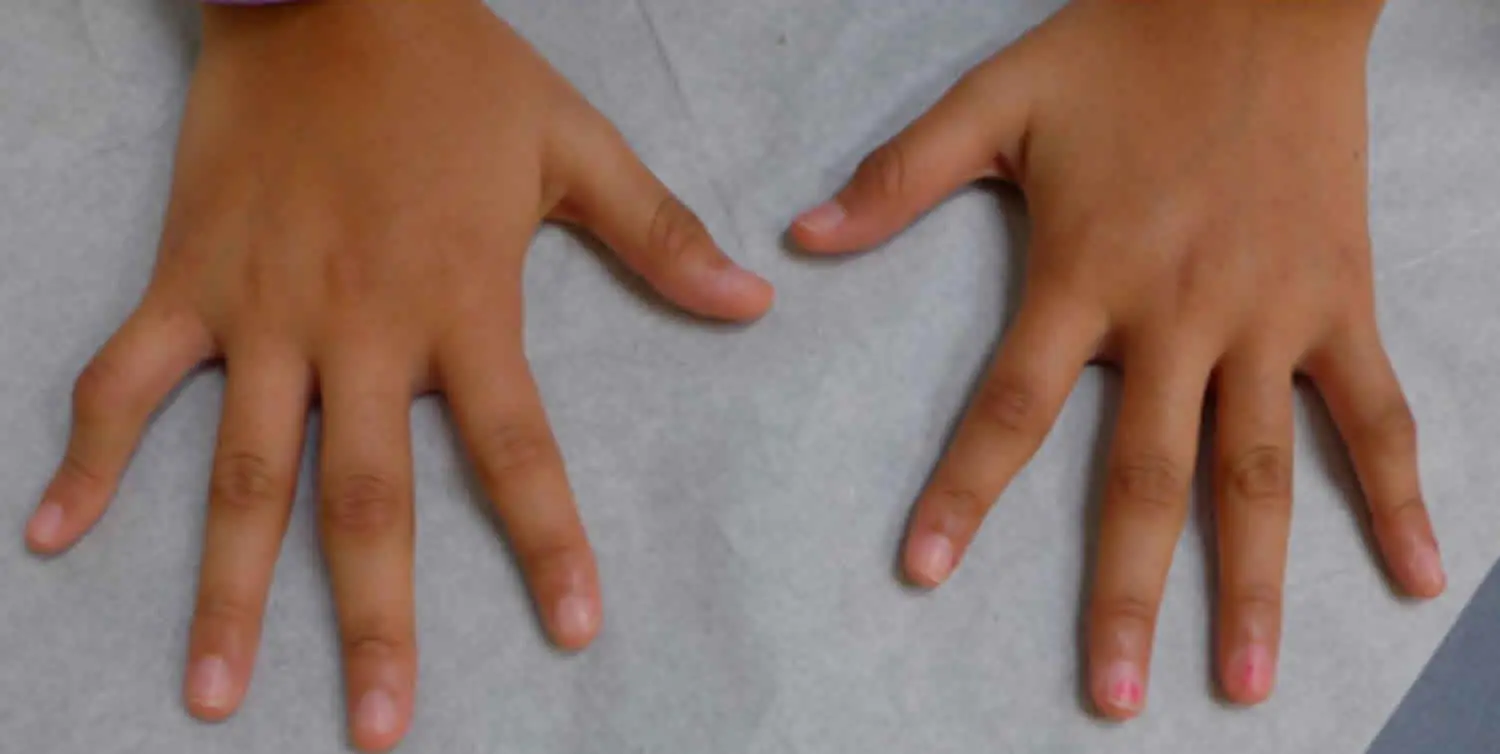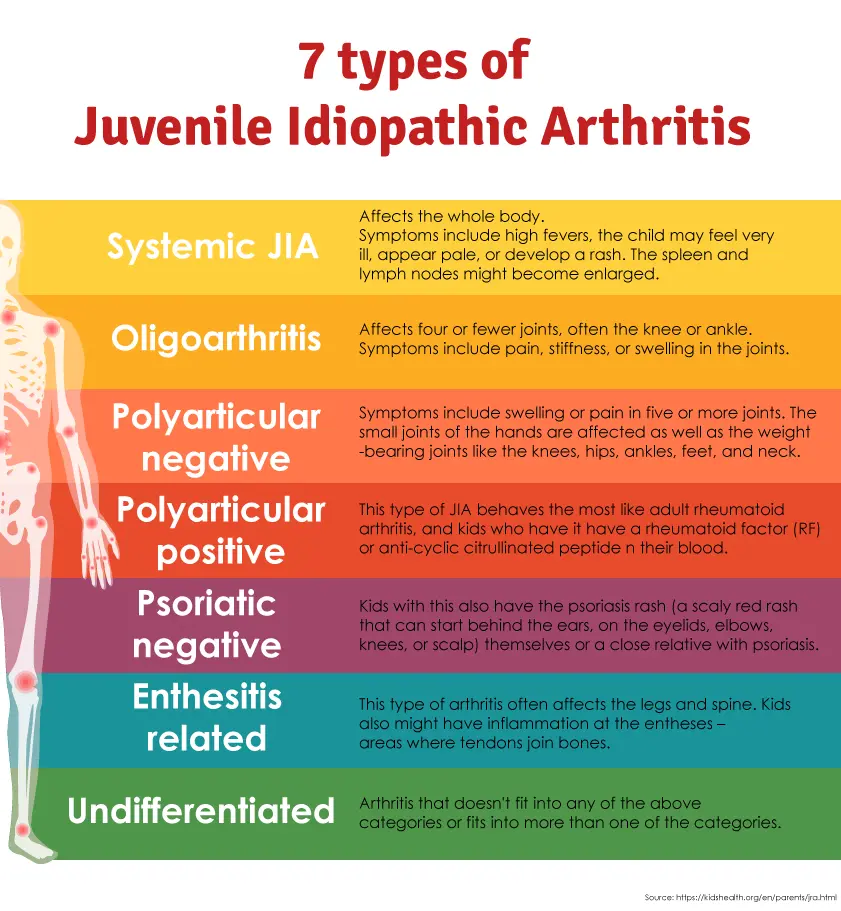Can Juvenile Idiopathic Arthritis be Cured?
Sometimes
No cure; management focuses on controlling symptoms, preventing joint damage, and improving quality of life; outcomes vary, and some individuals may achieve remission with appropriate treatment

What is Juvenile Idiopathic Arthritis?
Juvenile idiopathic arthritis (JIA) is a group of chronic inflammatory joint conditions that begin before the age of 16. Treatment aims to control inflammation, relieve pain, and maintain joint function. It may include medications, physical therapy, and in some cases, lifestyle modifications. Regular monitoring is essential for optimal management.

Clinical Aspects

Characteristics
Chronic inflammatory joint disease that begins before the age of 16, with various subtypes

Symptoms
Joint pain, swelling, stiffness, fatigue

Diagnosis
Clinical evaluation, blood tests

Prognosis
Variable, depends on the type and response to treatment

Complications
Joint damage, complications affecting mobility
Etiology and Treatment

Causes
Autoimmune factors, genetic predisposition, environmental triggers

Treatments
Medications (nonsteroidal anti-inflammatory drugs, disease-modifying antirheumatic drugs), physical therapy, lifestyle modifications

Prevention
Medications (nonsteroidal anti-inflammatory drugs, disease-modifying antirheumatic drugs), physical therapy, lifestyle modifications
Public Health and Patient Perspectives

Epidemiology
Chronic joint inflammation in children

Patient Perspectives
Medications, physical therapy, sometimes surgery
As always, consult with healthcare professionals for personalized advice and care.
Share: